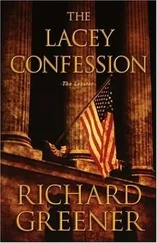Richard Greener - The Knowland Retribution
Здесь есть возможность читать онлайн «Richard Greener - The Knowland Retribution» весь текст электронной книги совершенно бесплатно (целиком полную версию без сокращений). В некоторых случаях можно слушать аудио, скачать через торрент в формате fb2 и присутствует краткое содержание. Жанр: Триллер, на английском языке. Описание произведения, (предисловие) а так же отзывы посетителей доступны на портале библиотеки ЛибКат.
- Название:The Knowland Retribution
- Автор:
- Жанр:
- Год:неизвестен
- ISBN:нет данных
- Рейтинг книги:5 / 5. Голосов: 1
-
Избранное:Добавить в избранное
- Отзывы:
-
Ваша оценка:
- 100
- 1
- 2
- 3
- 4
- 5
The Knowland Retribution: краткое содержание, описание и аннотация
Предлагаем к чтению аннотацию, описание, краткое содержание или предисловие (зависит от того, что написал сам автор книги «The Knowland Retribution»). Если вы не нашли необходимую информацию о книге — напишите в комментариях, мы постараемся отыскать её.
The Knowland Retribution — читать онлайн бесплатно полную книгу (весь текст) целиком
Ниже представлен текст книги, разбитый по страницам. Система сохранения места последней прочитанной страницы, позволяет с удобством читать онлайн бесплатно книгу «The Knowland Retribution», без необходимости каждый раз заново искать на чём Вы остановились. Поставьте закладку, и сможете в любой момент перейти на страницу, на которой закончили чтение.
Интервал:
Закладка:
“I’m glad you could make it, Bob,” Maloney said. Tom turned on the combination of charm and unspoken power that was his trademark. It was like a faucet, and he opened it wide. Tom said that one man may have killed both Christopher Hopman and Billy MacNeal. He did not say why. Each of these men was a friend as well as a customer-an extremely important customer. Tom wanted the assassin found and “taken care of.” Maloney had given a lot of thought as to how to say that. He’d never done this before. Not quite this way anyway. He’d considered “Eliminate.” “Terminate.” “Neutralize.” The phrase “rub out” crossed his mind in the midtown tunnel. As he entered David’s, inhaling the scent of mustard and garlic, he settled on “taken care of.” Wilkes seemed to understand and accept the term, and with that, Tom felt mild relief.
Wilkes had a surprisingly deep and gentle voice. “Done,” he said. He then explained in specific detail the composition of his team and how it would work. No names of course, referring only to “our guys,” “subjects,” and “clients.” From the looks of him, Wilkes figured, Maloney needed no assurance. Nevertheless, he added, “We know what we’re doing. This sort of thing is not unusual. But there are lines we can’t cross, people we won’t touch. We can handle things everywhere, across the country, anywhere. We’ve got ‘friends’ too-people in every major city-and they have their own circles of influence, which I have described. Philly, LA, Chicago, New Orleans, Seattle. You name it. And the ones I interact with personally have been my friends for twenty years.”
“How will we know you’ve got the right man?” Maloney asked.
“If you’re not happy, we’re not happy. More than that I can’t say.”
And then Wilkes asked, “Who is he?”
That was the tough part, Tom told him. If the two shootings are unrelated, no further action is required. If they are, you resolve it. “Either way, you get paid in full. That won’t be a problem for you, will it?”
Wilkes had just been told the job was more complicated than he thought. Maloney could see he was not pleased with that prospect. Wilkes frowned, but did not reply. He stared absently past Tom, at the heavy waitress tapping her fingernails at the far end of the counter, near the steamed-up deli window.
“Double.” Wilkes’s voice was mellow as ever, but Tom glimpsed tension in the fingers gripping his coffee cup. “The price is double.”
“How much?”
“Two hundred and fifty.”
“Half now. Half when it’s done,” Maloney said. “I’ll have two hundred and fifty thousand ready for you in an hour.”
“Two hundred and fifty is double,” Wilkes said. Maloney couldn’t be sure if it was the shock or a pang of moral conscience.
“I know,” Tom smiled, “but there are some things it’s always best to overpay for. I think this is one of them, don’t you?”
Gatlinburg
Floyd Ochs was one of those small, wiry, middle-aged Southern white men who look twenty years older than they are. A woman who worked in his processing plant described him, within his wife’s hearing, as “… the kind you really don’t want to see naked.” Floyd was a man of few words and fewer smiles. Given the choice he’d rather be fishing. Ochs was born and raised in Lucas, Tennessee. After high school he fixed cars, pumped gas, worked some construction, and spent a couple of months carrying parts around a Memphis motorcycle engine warehouse. Then he joined the Marines. Germany and Korea failed to broaden Floyd’s ambitions. After the service he bee-lined for home and the processing floor of Knowland amp; Sons.
That same year he married Hazel Cummins, a heavy-set, plain-looking girl he’d met in church three weeks before. They enriched the community with three boys in less than five years. Floyd’s good points stood out in his end of Lucas, Tennessee. Unlike most of his friends, he didn’t drink much. He never hit his wife or made trouble with anyone else’s. He enjoyed life at home. He loved his boys and did whatever he supposed a good father should. And Floyd Ochs showed up for work every day.
In the late 1970s the industry was transformed by a series of management consulting reports. One of these changed the way meat packing plants were run. Historically, plant managers had been company executives, ambitious, college-educated men eager to gain combat experience in the field. The company saw them as men on the move. Whether punching their tickets in Iowa, Michigan, Tennessee, or Nebraska, they were not local people. Locals correctly perceived them as outsiders arriving from someplace en route to someplace else, making their way up the pole. That began to change after 1980. The consultants suggested a less expensive way to run plants. And as suggested, meat packers began promoting local employees to responsible positions, to more than foreman and supervisor. To qualify, such men had to show up every day, sober and respectful. Floyd headed the line. Gradually, some of the chosen moved off the floor and into the front office.
By 1985 Floyd was an Assistant Plant Manager, one of six-many more than needed; corporate headquarters hadn’t a clue as to how many would last. In 1992 he was Plant Manager, with only the two assistants he required. In less than twelve years Knowland amp; Sons had replaced its entire on-site management echelon at less than a third of its previous payroll cost. The new men managed efficiently and cheaply, did exactly what they were told, and were by-and-large accepted by the work force as exalted elder brothers. Headquarters called them “townies.” Best of all, neither Floyd nor his counterparts ever thought of leaving home, of becoming real corporate executives. They craved upward mobility even less than their bosses hoped they would.
Floyd and Hazel took the same vacation every year. In August they visited Gatlinburg for a week. When the boys were young, Floyd and his sons fished together. Nowadays, he fished alone. For one full day Floyd left Hazel to her shopping and drove to the Hiawassee River. This year was no different from last year.
As he always did, he parked almost a mile away, tramped through humid fields, and made his way carefully down a steep, heavily wooded, rock-studded incline to the river. From its edge, jutting twelve feet into the tumbling water, a whale-gray rock measured thirty-seven feet across, just about flat as a board. Floyd and his sons had taped it out, and knew every inch of its surface. This stretch of the Hiawassee was wild, which made for fine fishing because it was not navigable; no boats nosed about to disturb the underwater life. Standing at the edge, Floyd could see a quarter mile in all directions but behind. He reflected once again on his deeply held, immensely satisfying belief that he and his boys were the only ones ever to fish from this beloved rock-most certainly the only ones since far-off Cherokee times.
He listened to the steady sounds of river and forest, rushing water slapping rocks, summer air in moving branches; smiled at the arguing jays and austere hawks wheeling high then disappearing into and behind the sweet-smelling pines. Floyd Ochs set down his fishing rod and opened the basket of sausage and beer beside him. He took out a Bud and pushed down on the tab. He loved the snap of the can and the fizzy noise he’d been hearing since his Daddy showed him how. As he lifted the can to his lips and felt the cold, wet metal on the tip of his nose, he thought he heard footsteps behind him. He started to turn as the force of a spinning bullet took his head from his shoulders. The sound echoed through the river valley, scattering the birds. His car was discovered that evening, a few hours after Hazel reported him missing. His head floated downstream to a state camping area, and was found the next day. But it took three more days to find the rock and the rest of Floyd.
Читать дальшеИнтервал:
Закладка:
Похожие книги на «The Knowland Retribution»
Представляем Вашему вниманию похожие книги на «The Knowland Retribution» списком для выбора. Мы отобрали схожую по названию и смыслу литературу в надежде предоставить читателям больше вариантов отыскать новые, интересные, ещё непрочитанные произведения.
Обсуждение, отзывы о книге «The Knowland Retribution» и просто собственные мнения читателей. Оставьте ваши комментарии, напишите, что Вы думаете о произведении, его смысле или главных героях. Укажите что конкретно понравилось, а что нет, и почему Вы так считаете.











